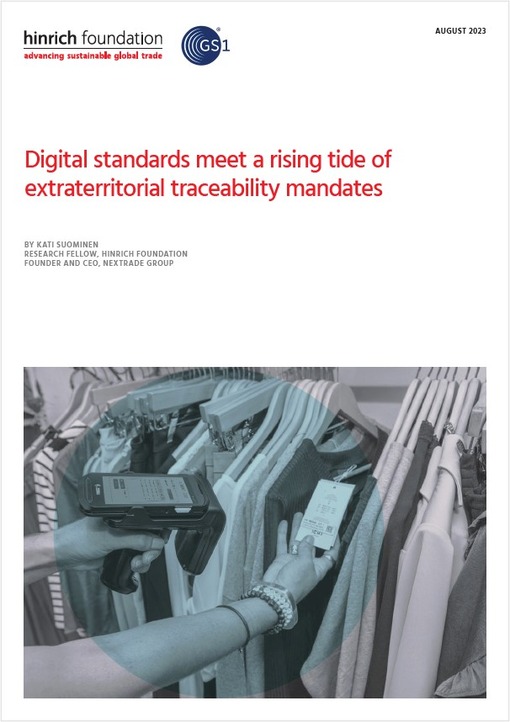Digital trade
Digital standards meet a rising tide of extraterritorial traceability mandates
Published 29 August 2023
Driven by a policy focus on sustainability and consumer protection, both the US and the EU have issued sweeping mandates for supply chain traceability in food and consumer products respectively. As businesses scramble to meet these mandates emerging around the world, governments will need to step up their support to promote especially small firms’ digitization and data capabilities.
Traceability has the potential to advance sustainability, prevent counterfeiting, promote recycling, and enhance labor rights and safety. In the three decades since supply chains began to globalize at scale in the 1990s, most businesses still have little visibility past their first-tier, immediate suppliers. This is now changing, thanks to both technology, such as blockchain, and policy, such as the US Food and Drug Administration's Final Rule and the European Union's Digital Product Passport (DPP).
But for businesses, these new trends create new challenges. By virtue of their extraterritorial reach, the Final Rule and DPP also bring about perhaps the biggest supply chain shake-up yet for firms in many sectors worldwide. These mandates impose significant new data requirements, which translate into new costs and operational changes. They also risk a patchwork of overlapping data demands, which can pose a new trade barrier.
In this paper jointly commissioned with the global standard-setter GS1, Research Fellow Kati Suominen discusses the policy trends of traceability and solutions to enable businesses to adjust and comply with the new rules. To help ensure the new traceability mandates translate into trade gains, Suominen urges policymakers to provide support to small suppliers and work closely with the private sector to create globally interoperable traceability standards.
© The Hinrich Foundation. See our website Terms and conditions for our copyright and reprint policy. All statements of fact and the views, conclusions and recommendations expressed in this publication are the sole responsibility of the author(s).







